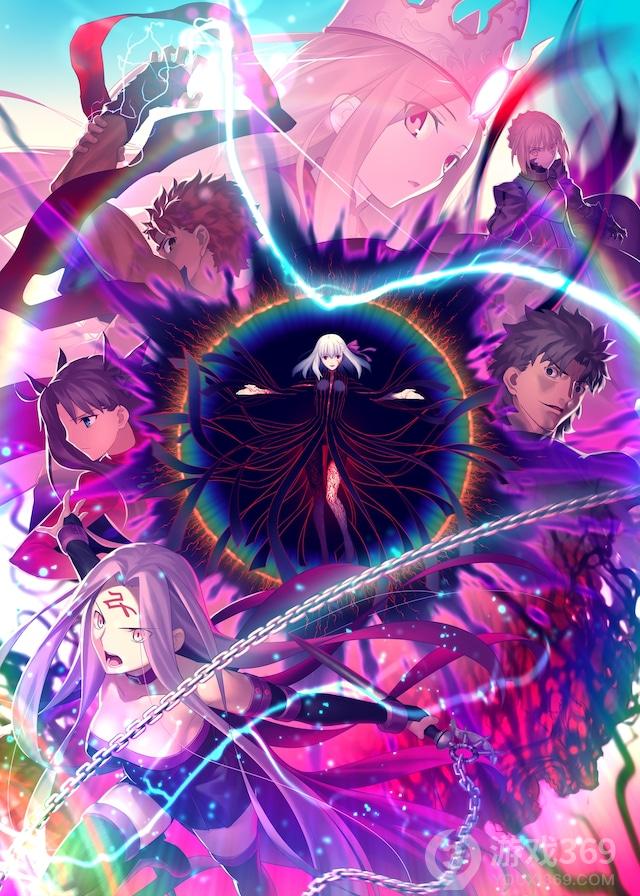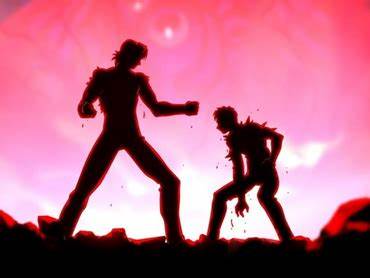How Fate/Stay Night Tells a Story on the Pursuit of Happiness
Comments on Fate/Stay Night telling a story beyond the pursuit of heroism
After reading the three routes of the visual novel Fate/stay night, I’ve acquired some new learnings about what constitutes “happiness”. The protagonist of the story, Emiya Shirou, provides a very good case for us to inquire about what happiness is and how to pursue it, so in this article I want to share what I’ve learned and hope to ignite in you thoughts about how to reach your own happiness.
To briefly provide you with a personalized summary of such story in case the this visual novel (or the movies adapted from it) is not part of your reading or watching list, Emiya Shirou was a victim of a fire incident that killed hundreds in the fictitious city of Fuyuki who was saved and later adopted by Emiya Kiritsugu, a mage who aspired to be an ally of justice (commonly called a “hero”). While being saved in this fire, he saw in Kiritsugu’s face a very warming smile despite being in a very catastrophic, hellish situation. Growing up, Shirou developed some sort of trauma from the incident because he was the only survivor of such, living a life feeling like a criminal who didn’t deserve to survive while everyone else died. He found in Kiritsugu a way of life to become happy, by inheriting his wish of becoming a hero (an ally of justice), because he was, to some extent, envious of his smile when being saved by him during the fire. With this state of mind, that is, borrowing the ideals of becoming a hero from his foster father is that the visual novel starts and unfolds a story of a youngster trying to become a hero of justice.
However, when trying to become an ally of justice (from now on referred to as “hero”), he was faced with the friction that reality brings to an ideal. By striving to become a hero, he was faced with very harsh decisions befitting an ally of justice, such as for instance sacrificing the few in order to save the many, allying itself to one side in order to eliminate the opposite, and repeating such vicious cycle for eternity in order to save humanity from extinction. For instance, he was tasked by the Universe to travel through faraway times and places to end wars that may have ended the history of humankind. He had to also face betrayal. In the end, did he feel happy by choosing this path of being a hero? He regretted it to the point of wanting to erase his own existence.

An alternate version of him, that is, from an alternate route in the visual novel, instead chose to abandon the ideal of becoming an ally of justice, instead an ally of a girl he loved, Sakura Matou. Sakura was turned into a vessel for invoking the Holy Grail (an omnipotent device for granting wishes) in a corrupted ritual that failed for centuries. In order to protect and save her from this painful fate, this version of Shirou also faced rough decisions such as between sacrificing innocent people from being killed by the corrupted vessel or killing his loved one, betraying his beliefs of a hero of justice. He also had to betray his ally, and even risked his own life in order to uphold the wish of becoming a hero that could protect Sakura. In the end, did he find happiness by choosing this path of being an ally of his loved one? After all these struggles that almost ended his own life, he decided to accompany Sakura and share with her the burden of the sins from those who died from the curse of the corrupted vessel, living in order to see the next blooming season of cherry blossoms with her.
What does this have to do with happiness?
I think a main teaching from the story (apart from the plethora of messages transmitted through the story such as ideals, friction with reality, the meaning of love, of perseverance, among others) is that to lead a happy life is to lead a way living where despite the challenges and obstacles it’ll give you, you can still stand up to them and continue to persevere forward and defend in what you believe. Despite your sacrifices, your losses or your achievements, your gains, this way of life you led was one with no regrets.
If I were to provide with an exaggerated example, it may be the case that a murderer who doesn’t regret causing pain to people, instead derives pleasure from it, probably lives a more “happy life” than, say, a lifesaver who regrets his/her decision of becoming such because he or she can’t withstand the burden from the sacrifices that have to be made despite having acquired some temporary pleasure from this path of saving lives. Such a contrast between personalities can also be seen portrayed in the Heaven’s Feel Route, by the conflict between Kotomine Kirei and the protagonist Emiya Shirou. It was said that they both share very similar qualities because both of them didn’t know what happiness really was, so they both chose ways of lives that they thought may have brought them to happiness. For Kotomine Kirei, he was born with a “defect”, that is, he simply naturally likes to cause pain in other people, and derived pleasure from it. But the difference between him and what we commonly see “villains” portrayed in other artistic works is that Kirei was given common sense, that is, like you and I, he knows that having such feeling is considered evil by society so he attempted to reform himself by either finding a profession he may like, such as becoming a mage and later a priest, or even trying to find happiness from a marriage and bearing a child. Nonetheless, in all attempts, he just regretted he couldn’t kill the people around him with his own hands, and had to bury this desire deep in his heart, whilst searching for happiness, searching for an answer whether his natural personality is truly “wrong”, or was just another consensus reached by society.
Just like the alternate version of Shirou who searched for happiness by being an ally of his loved one, Kirei also embarked on his search for happiness by trying to bring a curse that’d kill the entire world and see in the end if regret, or pleasure, will fall upon him. This threatened the live of Sakura, so eventually Shirou had to crush his wish.

What’s interesting is that after Shirou managed to push him to his death, which eventually stopped him from getting the answer of whether his murderous desire could be allowed in this world and considered to also be a path to happiness, he smiled, albeit not very evidently. This conveys an interesting idea that Kirei may have accepted his own “defective” nature and accepts his fate of being defeated by the hands of “good” because he is the pure manifestation of evil. Anyway, the notion of having no regrets is once again displayed: he may have suppressed his inner evil for most of his life to merge well with society, but in this final confrontation he didn’t have to hold back anymore and a torrent of evil desire was rightfully halted by a torrent of good desire.
All in all, I hope that these thoughts shared may spark in you the desire to pursue happiness, that is, to live a life with no regrets, to overcome the adverse challenges and enjoy the fruits of your efforts, to strive forward despite the obstacles that hinder your path.
Poem on the Pursuit of Happiness (幸福的渴望)
渴望幸福,渴望喜悦
Crave for happiness, Crave for joy
所谓的幸福乃是喜悦的追求
What’s known as happiness is the pursuit of joy
但本质也是是苦涩的道路
Nonetheless, this path in its essence is bitter
追求完美则发现痛苦的意义
When pursuing completeness, the meaning of pain is found
追求快乐则发现此路的艰难
When pursuing joy, the harshness of such pursuit is shown
想放弃,想追求
Give up, move forward
想倒下,想前进
Fall down, strive forward
敢问牺牲可否承受的住
I want to ask whether I can handle the sacrifices
敢问收获可否达到成全
I want to ask whether the achievements can make me feel complete
最终,即使在迷茫中
In the end… even if shrouded amidst confusion
只求无悔自己,不负他人
I pursue only a life without regretting myself, without wronging those beside me
Enjoy Reading This Article?
Here are some more articles you might like to read next: